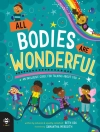‘Neuropsychological Rehabilitation provides useful introductory material and backgroundinformation on various disorders, assessments, and rehabilitative interventions for adult andgeriatric populations…This book is essential for psychologists or clinical neuropsychologists who have a stronginterest in understanding the current medical aspects of neuropsychological rehabilitation.’– Psyc CRITIQUES
This volume disseminates knowledge about the most advanced practices and techniques in the rehabilitation of neuropsychological deficits, covering both specific neuropsychological domains and approaches in neurorehabilitation. It adheres to the philosophy that it is not enough to identify a deficit or diagnose a disease unless doing so helps to direct rehabilitation efforts to improve function. Intended to advance clinical skills, the book goes beyond surface diagnostic practice to foster rehabilitative efforts in response to residual deficits and disease.
The volume begins by addressing the foundations of neuropsychology in rehabilitation and discussing, in depth, domain-specific rehabilitation practices, with a focus on functioning. This is followed by a discussion of supplemental applications and practices that go beyond function-specific methodology including neuroimaging and pharmacological agents. Also covered is the role of system/environmental manipulation and transitioning strategies. The final section attends to those presentations/groupings most commonly seen in rehabilitation practice for which there is no prototypical form.
Key Features:- Presents in depth the most advanced clinical applications for neuropsychological rehabilitation
- Covers neuropsychological rehabilitation in terms of specific cognitive domains (attention, language, memory) and approaches to and practices in neurorehabilitation (neuroimaging, vocational rehabilitation, pharmacological rehabilitation)
- Written by the foremost scholars in the field
İçerik tablosu
‘
Preface
Acknowledgements
Section I: Biological Components, Medical Care, and Special Considerations
Chapter 1: Neuropsychology and Cancer: An Emerging Focus
Chad A. Noggle and Rayomnd S. Dean
Chapter 2: Urological Cancers: Functional & Neuropsychological Outcomes
Thomas Frye, Joe Miller, and Thomas Tarter
Chapter 3: Neuropsychological Sequelae of Breast Cancer
Elizabeth Peralta
Chapter 4: Neurocognitive Impact of Gynecologic Cancers
Lisa M. Hess and Jeannie Schilder
Chapter 5: Neuropsychological Outcomes in Colorectal Cancers
Imran Hassan, Vriti Advani, and Asha M. Alex
Chapter 6: The Neuropsychological Aspects of Head and Neck Cancer
Sandra Ettema, Sheryl Reminger, and K. Thomas Robbins
Chapter 7: Neuropsychological Correlates of Lung Cancer
Chad A Noggle and Christopher Mc Cormick
Chapter 8: Neuropsychological Implications of Skin Cancer
Daniel Combs and Lee D. Cranmer
Chapter 9: Neuropsychological Sequelae of Hematological Cancers
Christopher M. Mc Cormick and Chad A. Noggle
Chapter 10: Cancers of Childhood: Biology and Forms
Neelam Jain, Lana Harder, Brian Potter, and Kevin R. Krull
Chapter 11: Brain Metastases and Tumors
Joachim Baehring
Chapter 12: Neuroimaging in Cancer and Oncology
Susan K. Conroy, Brenna C. Mc Donald, Darren P. OíNeill, and Andrew J. Saykin
Section II: Neuropsychological Impact
Chapter 13: Attention and Executive Functions in Cancer and Cancer Treatment
Amy L. Swier-Vosnos
Chapter 14: Effects of cancer and cancer treatment on learning and memory
Martin Klein
Chapter 15: Language Functioning in Cancer and Oncology
Michelle R. Pagoria
Chapter 16: Impact of Cancer and Oncology on Visuospatial and Visuoperceptual Functioning
Amy R. Steiner, Chad A. Noggle, and Amanda R. W. Steiner
Chapter 17: Sensory-Motor Functioning in Cancer and Oncology
Raymond S. Dean and Chad A. Noggle
Chapter 18: Psychosocial Functioning in Cancer
Joel Marcus
Chapter 19: Childhood Cancers: Neurological Development and Integrity
Deborah G. Dwelle, Corey D. Anderson, and Robert W. Butler
Section III. Neuropsychological and Behavioral-Health Interventions
Chapter 20: Neuropsychological Rehabilitation & Habituation
Susan Walsh and Margaret Primeau
Chapter 21: Pharmacological Interventions: Addressing Residuals and Outcomes of
Cancer
Linda M. Sutton and Ivy Altomare
Chapter 22: Complimentary Practices: Fatigue, Stress, Exercise, and Diet Practices
Sandra Vicari & Phil Anton
Chapter 23: Survivorship & Quality of Life
Rhonda Johnson
Chapter 24: Psycho-Oncology: A Specialty Practice
Teresa Deshields
Index
‘Yazar hakkında
Mark T. Barisa, Ph D, ABPP, is a board certified clinical neuropsychologist at the Baylor Institute for Rehabilitation in Dallas, TX.












